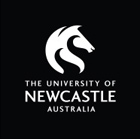Master of Traumatology
- Posted by University of Newcastle
- Home
- Courses
- University of Newcastle
- Master of Traumatology
Master of Traumatology
The Master of Traumatology at the University of Newcastle has been designed in response to the increasing demand for trauma specialised medical professionals. Aimed at medical practitioners, nurses, allied health professionals, and pre-hospital paramedics wanting to take the next step in their career, this program will equip you with specialised…
Categories
COURSE DESCRIPTION
The Master of Traumatology at the University of Newcastle has been designed in response to the increasing demand for trauma specialised medical professionals. Aimed at medical practitioners, nurses, allied health professionals, and pre-hospital paramedics wanting to take the next step in their career, this program will equip you with specialised practical skills that will enable you to accelerate improvement in injured patients.
What you will study
The Master of Traumatology will allow you to achieve a comprehensive and critical understanding of the pathophysiology, aetiology, outcomes and management of trauma medicine. You will expand your knowledge and skills in areas including trauma systems, post-injury critical care, torso trauma, musculoskeletal trauma and neurotrauma.
You will also focus on research methodology which will provide you with the opportunity to engage in traumatology research, developing a strong foundation in the science and practice of injury management.
Key areas of study include:
Biostatistics
Epidemiology – Basic Methods
Post-injury Critical Care
You will also have the opportunity to specialise in one of five key speciality areas:
Trauma specialisation – you will complete three core courses, four compulsory courses and one directed course, enabling you to focus your studies on enhancing your expertise in trauma injury management.
Orthopaedic specialisation – you will complete three core courses, four compulsory courses and one directed course, enabling you to focus your studies on advancing your Orthopaedic expertise and knowledge in effective trauma management.
Surgery specialisation – you will complete three core courses, four compulsory courses and one directed course, enabling you to focus your studies on transitioning toward a career in various different surgical fields including trauma surgery.
Research specialisation – you will complete three core courses, two compulsory and three directed courses, enabling you to focus your studies toward a career in medical and trauma research.
Military specialisation – you will complete three core courses, four compulsory courses, and one directed course, enabling you to focus your studies on specialising in and gaining a comprehensive and critical understanding of the latest advances in military surgery and military trauma care.
Career opportunities
At the successful completion of the program, you will be equipped with a strong foundation in the science and practice of injury management, and you will be able to use your qualification to satisfy Curriculum Vitae Selection Points in applications for Surgical Education and Training (SET) with the Royal Australasian College of Surgeons (RACS).
Possible career paths may include:
Trauma Surgery
Trauma nursing and allied health
General surgery and its subspecialties
Orthopaedics
Neurosurgery
Plastic and reconstructive surgery
Emergency medicine
Anaesthetics
Intensive care medicine
Australian Defence Forces
EDUCATIONAL INSTITUTION
The University of Newcastle, Australia is a world-class university. Excellence in teaching, research, and the student experience are our focus.
The University of Newcastle is one of the world’s top 200 universities1, known for making a global impact and top 5 in the world for partnering for a more sustainable future2.
We embrace technology and best practice to deliver the best possible student experience. Our mission is to help students become life-ready graduates. We do this through practical learning, innovative styles of teaching, internationally recognised study programs and world-class research.
We are number one in Australia for industry collaboration3, our partnerships help our more than 39,000 students4 to be more employable and start on higher salaries than the Australian average5.
1 QS World University Rankings 2023
2 Times Higher Education Impact Rankings 2022
3 Innovation Connections IC Report 2014 - 2020
4 The University of Newcastle Data Warehouse 2021
5 QILT Graduates Outcomes Survey 2018 - 2020




